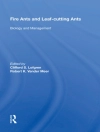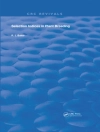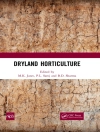This book provides an in-depth analysis of the wheat production developments in the Eurasian region and assesses the potential contribution of the region to domestic and international food security. In particular, the book covers policy and institutional developments of the agricultural sector in Eurasia with a special focus on the horizontal issues relevant to the current and future potential growth of the wheat production, such as land policy, credit and finance, privatization, farm restructuring, and environmental challenges.
Global food security is a major societal concern in the light of an increasing population, which is projected to grow from around seven billion today to almost 10 billion in 2050. Two most likely ways to achieve the much needed food production growth are: expansion of land cultivation or increase in crop yields and total factor productivity. The only region with a significant amount of uncultivated arable land that is at the same time experiencing rising agricultural productivity is the “Eurasian wheat belt, ” comprising of Russia, Ukraine, Kazakhstan, and the Central Asian countries (Uzbekistan, Tajikistan, Turkmenistan, and Kirgizstan). This makes the region a potential hotspot for driving the future growth of global agriculture. Such prospects require a detailed investigation of Eurasia’s future perspectives in terms of food production (with a focus on wheat) and its potential contribution to regional and global food security.
İçerik tablosu
Part I: The commercial and institutional framework of the Eurasian wheat belt region.- Privatization and changing farm structure in the Commonwealth of Independent States.- Land policy in Russia: New challenges.- Credit and finance issues in the Eurasian wheat belt.- Part II: The role of agricultural policies.- Agrarian reforms in Ukraine.- Outcomes of the agrarian reform in Russia.- More than pouring money into an ailing sector? Farm-level financial constraints and Kazakhstan’s “Agribusiness 2020” strategy.- The new wheat exporters of Eurasia and volatility.- Part III: The future of grain production and export.- Assessing the potential for Russian grain export: A special focus on the prospective cultivation of the abandoned land.- Production potential of Kazakhstan.- Future perspectives on regional and interregional food security, emerging players in the region: Uzbekistan.- Wheat production in Turkmenistan: Reality and expectations.- Part IV: A neighbouring and global perspective.- The development of the Eurasian livestock and grain economies.- Eurasian grain markets in an uncertain world: A focus on harvest failures in Russia, Ukraine and Kazakhstan and their impact on global food security.- China’s role in world food security.- Wheat sector in India: Production, policies and food security.- Part V: Conclusions and policy considerations.
Yazar hakkında
VOLUME EDITORS
SERGIO GOMEZ Y PALOMA is a senior researcher at the Joint Research Centre (JRC) of the European Commission. He studied Agricultural Sciences and Agricultural Economics at the universities of Bologna, Milano and Napoli (Italy), and Agro Paris Tech (France). Before joining the JRC he was a Lecturer of development economics at Roskilde University, Denmark. His main research interests include agricultural policy analysis, agricultural-micro economics, and development economics.
SÉBASTIEN MARY is a Visiting Assistant Professor of Economics at De Paul University. He completed his Ph D at the University of Aberdeen. Previously, he has held positions at the University of Aberdeen and at the European Commission’s Joint Research Centre. His research interests focus on agricultural policy, rural development and food security.
STEPHEN LANGRELL is a senior researcher at the DG for Health and Food Safety of the European Commission. Previously he was senior researcher at the Joint Research Centre (JRC). His research interests focus on agricultural policy, plant protection and environmental sciences.
PAVEL CIAIAN is a senior researcher at the Joint Research Centre (JRC) of the European Commission. He studied at KU Leuven University in Belgium. Before joining the JRC, he was senior researcher at the LICOS Centre for Institutions and Economic Performance and Assistant Professor of economics at the Slovak Agricultural University. His research interests focus on agricultural policy, institutional economics, and energy and development economics.












